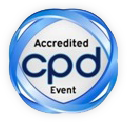
Agata Carolina Cevey
Universidad de Buenos Aires, Argentina
Title: Low-dose benznidazole treatment results in parasite clearance and attenuates heart inflammatory reaction in an experimental model of infection with a highly virulent Trypanosoma cruzi strain
Biography
Biography: Agata Carolina Cevey
Abstract
Chagas disease, caused by Trypanosoma cruzi, is the main cause of dilated cardiomyopathy in the Americas. Antiparasitic treatment mostly relies on benznidazole (Bzl) due to Nifurtimox shortage or unavailability. Both induce adverse drug effects (ADE) of varied severity in many patients, leading to treatment discontinuation or abandonment. Since dosage may influence ADE, we aimed to assess Bzl efficacy in terms of parasiticidal and anti-inflammatory activity, using doses lower than those previously reported. BALB/c mice infected with the T. cruzi RA strain were treated with different doses of Bzl. Parasitaemia, mortality and weight change were assessed. Parasite load, tissue infiltrates and inflammatory mediators were studied in the heart. Serum creatine kinase (CK) activity was determined as a marker of heart damage. The infection-independent anti-inflammatory properties of Bzl were studied in an in vitro model of LPS-treated cardiomyocyte culture. Treatment with 25 mg/Kg/day Bzl turned negative the parasitological parameters induced a significant decrease in IL-1β, IL-6 and NOS2 in the heart and CK activity in serum, to normal levels. No mortality was observed in infected treated mice. Primary cultured cardiomyocytes treated with Bzl showed that inflammatory mediators were reduced via inhibition of the NF-κB pathway. A Bzl dose lower than that previously reported for treatment of experimental Chagas disease exerts adequate antiparasitic and anti-inflammatory effects leading to parasite clearance and tissue healing. This may be relevant to reassess the dose currently used for the treatment of human Chagas disease, aiming to minimize ADE.

